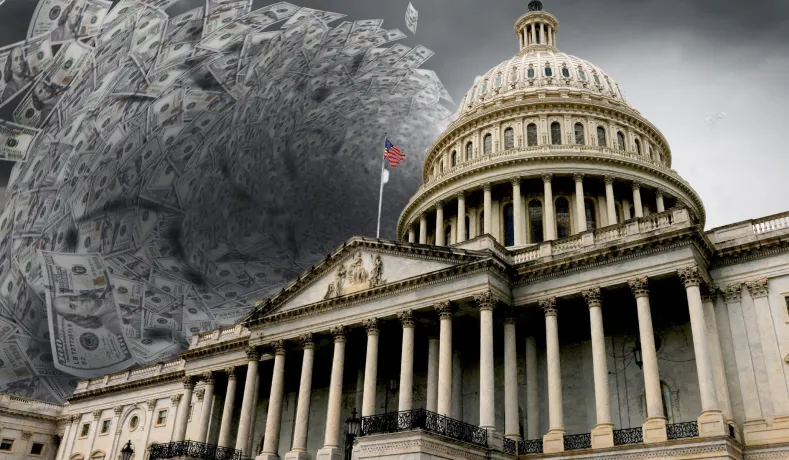Welcome to mandatory-spending dominance
In any introductory macroeconomics class, you will be taught something about public finance that goes like this: The government’s budget deficit is related to the business cycle. Near the peak of the business cycle, the government should run a surplus because revenues are higher and the need for government spending is lower. Near the trough of the business cycle, the government should run a deficit because revenues are lower and the need for government spending is higher. In addition, the government will run a deficit in times of war or domestic emergency. There are also times when the government creates a new program and funds it with borrowing.
Now take a step back and look at the federal budget. Does the theory match the facts?
Not at all. The government has run a budget deficit every year since 2002, no matter where the country has been in the business cycle. The deficits have been growing quickly. In 2004, with the wars in Afghanistan and Iraq in full swing, the deficit was $400 billion. In 2009, the worst year of the largest U.S. recession since the Great Depression, the federal deficit was $1.4 trillion. In 2023, a year of low unemployment and high economic growth and revenue, the deficit was $2 trillion.
Despite his bragging about how strong the economy is, President Biden requests a $1.8 trillion deficit in his budget for fiscal year 2025. While portraying himself as a fiscally responsible deficit-cutter, his budget projects deficits between $1.4 trillion and $1.9 trillion for each year through 2034.
Read more at Nationalreview.com



